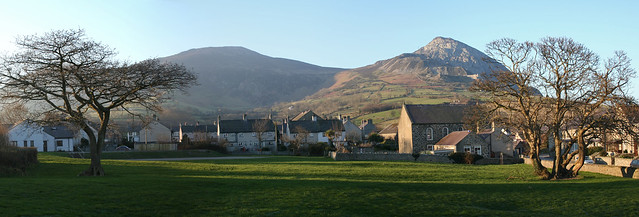Podcast: Play in new window | Download
In this episode we’re finding out how words for towns and related things in Celtic languages are linked to words for beehives in other languages.
The Proto-Celtic word *trebā means dwelling, and comes from the Proto-Indo-European *treb- (dwelling, settlement) [source].
Related words in the modern Celtic language include:
- treibh [ˈtʲɾʲɛv] = house, homestead, farmstead, household, family, tribe or race in Irish.
- treubh [treːv] = tribe, family, clan or kin, and possibly treabh [tro] = farming village in Scottish Gaelic
- tre(f) [treː(v)] = town; town centre; dwelling(-place), habitation, residence, home; house (and surrounding land), homestead or farm in Welsh
- tre = [trɛ:/tre:] = farmstead, home, town or village in Cornish
- trev = town in Breton
There doesn’t appear to be a cognate word in Manx.
Words from the same Proto-Celtic root (via Latin) possibly include trobo (beehive, skep) in Galician, and truébanu (beehive, barrel, basket) in Asturian [source].
The archaic English word thorp(e) (a group of houses standing together in the country; a hamlet; a village), which appears in place names such as Milnthorpe and Scunthorpe, comes from the same PIE roots [source].
Other words from the same PIE roots include Dorf (hamlet, village, town) in German, torp (farm, cottage, croft) in Swedish, þorp (village, farm) in Icelandic, and trevë (country, region, village) in Albanian [source].
You can be find more details of words for Towns and Tribes in Celtic languages on the Celtiadur, a blog where I explore connections between Celtic languages in more depth. I also write about words, etymology and other language-related topics on the Omniglot Blog.
